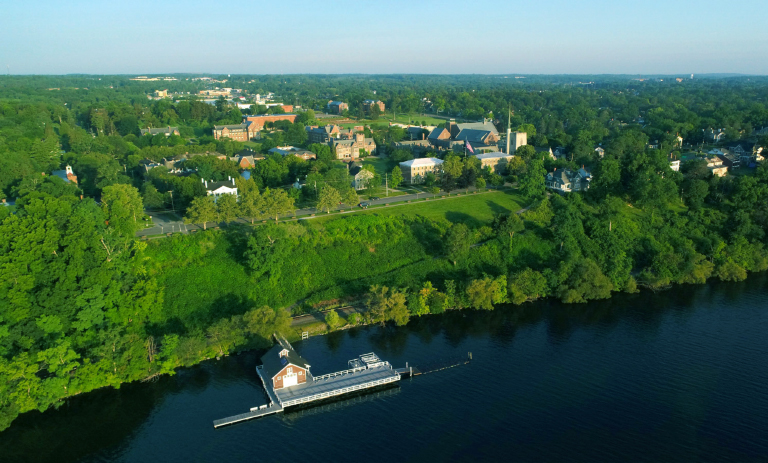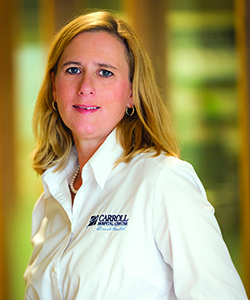
Lives of Consequence
Dona Hobart '87

Dona Hobart ’87, medical director of the Center for Breast Health at Carroll Hospital Center in Westminster, Md., is best known as the first surgeon in the state of Maryland to provide breast cancer seed localization treatment for her patients – a procedure she calls the future of breast cancer treatment. But this is just one very small piece of a much larger puzzle: changing the evolution of breast cancer care.
“My focus is on changing the concept of organ-based care into a more holistic sense of care,” Hobart explains. “And that’s the challenge. For many years breast cancer has been treated well, but it’s almost like the breast was this isolated organ not attached to anything. We were just glad that we treated the cancer, but we ignored the way it looked and felt after. And to me, that’s not right.”
A Non-Hodgkins lymphoma survivor herself, Hobart saw through her own experiences that in terms of treatment, “things could be done a lot better.” From individualized care to address each and every one of her patient’s needs to the free breast cancer screening program she started, Hobart has dedicated her career to revolutionizing the treatment of breast cancer.
Her most recent work has been starting the breast seed localization treatment program at Carroll Hospital, which required a nuclear license and an entire team of physicists, radiologists and pathologists to implement. The treatment helps surgeons identify abnormal breast tissue in surgery that can’t be seen or felt by hand by implanting a tiny metal seed in abnormal breast tissue.
“It makes things more comfortable for the patient and it also allows more streamlined scheduling and decreases infection risk,” explains Hobart. “I had chemo and a bone marrow transplant, so I have a bit of a sense of what’s going on in people’s minds and all the things you have to worry about. Even these little changes that make just one step less painful are really meaningful to patients.”
Whether it be providing a yoga class for her patients or organizing a retreat on sexuality after breast cancer, it’s the little changes that sets her work apart from other centers.
Under Hobart’s care, patients are required to take a nutrition course, provided acupuncture and massages, and given a biopsychosocial screening to help identify emotional struggles.
“I need to take this time in their life that’s really bad for them and make it better,” she explains. And figuring out how to do this, she believes, stems from her time at HWS, which allowed her not just to major in psychology, but also to focus on her writing and take courses in everything from philosophy to biology.
